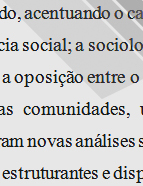

................................
On the other hand, the ideological component was evident in the selection of institutions and narrative genre . The victory of the liberals (1834), the establishment of the Republic (1910) and 28 May (1926), in addition to forcing this contamination, fixed the memory of their ‘heroes’ and the education of generations through the “learning” of the past (an emblematic case of the cult of “national memory”, see Sérgio C. Matos, Historiografia e Memória Nacional (1846-1898), 1998, p. 240). The high points of this history, unmistakably engagé , w , were the Congress of the Portuguese-Speaking World (1940), the 800th anniversary of the founding of Portugal (1943) and the 300th anniversary of the Restoration (1940). The same happened in the history of law with the return to legalistic-statist dogma, forcing the complicity of State Law with National Law, a dogma well illustrated by Luís Cabral de Moncada (1888-1974), jurist and professor of law at the UC, an activist of Lusitanian Integralism and national-unionism, director of the FD (1955 to 1958), vice-rector of the UC (1932 to 1940), decorated with the Grand Cross of the Military Order of Sant’Iago da Espada (1969) and honoris causa by the University of Heidelberg (1936).
While these characteristics dominated the historiography of the DHP period, there were also some unique features, two of which are worth highlighting. The debate that began in the late 19th century on political and institutional periodisation , taking into account the definition of the logic of continuity in the historical process and the criterion of using reigns as ‘natural’ and linear periods. And the emergence of major syntheses and monographs involving teamwork or in-depth individual research, although academic monographs are rare. The same can be said of the almost always unfinished General Histories. It is therefore clear that this historiography can only be understood and analysed by taking into account the environment in which historians worked, the human and material resources available, the level of technical development of archiving and library science, the type of sources and, above all, the theoretical understanding of the concepts of power and institution .
This work is financed by national funds through FCT - Foundation for Science and Technology, I.P, in the scope of the projects UIDB/04311/2020 and UIDP/04311/2020.
